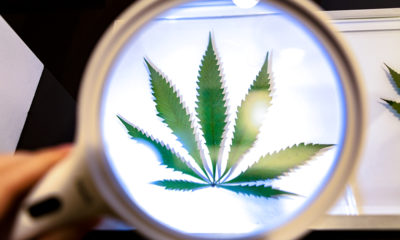Medical
Texas Governor Legalizes MMJ Program That No One Can Use
Photo courtesy Cannabis Culture
Although Texas Governor Gregg Abbott signed a bill legalizing the distribution and use of “low-THC” cannabis oil for epilepsy patients, there are now some concerns over whether these people will actually have access to the medicine, as the law implies.
“There is currently no cure for intractable epilepsy and many patients have had little to no success with currently approved drugs,” said Governor Abbott during a signing ceremony. “However, we have seen promising results from CBD oil testing and with the passage of this legislation, there is now hope for thousands of families who deal with the effects of intractable epilepsy every day.”
Unfortunately, it seems that lawmakers may have gotten into a rush when drafting the language of Senate Bill 339, also known as the Texas Compassionate Use Act, which idealistically, allows some 150,000 Texans suffering from epilepsy to have access to seizure-reducing cannabis oil. The problem, however, is when State Senator Kevin Eltife submitted his proposal in January for this restrictive medical marijuana program, he failed to take in consideration the specific language used that could, and quite possibly has, rendered it a worthless document.
Earlier last month, just days after the House put their stamp of approval on the bill, Heath Fazio, director of the Texas chapter of the Marijuana Policy Project, told CBS News that she was concerned with the functionality of the proposal because it forces doctors to “prescribe” cannabis oil, as opposed to offering a recommendation. This, she argued, was a major issue since federal law prevents physicians from prescribing medical marijuana.
Cannabis oil, regardless of its THC content, is still considered a Schedule I substance under the Controlled Substances Act. Any physician who writes a prescription for the oil not only runs the risk of losing their DEA license, but they also take a chance on being prosecuted by the federal government.
According to marijuana advocacy group American for Safe Access, “Under the CSA, marijuana is classified as a Schedule I drug, which means that the federal government views marijuana as highly addictive and having no medical value. Doctors may not “prescribe” marijuana for medical use under federal law, though they can “recommend” its use under the First Amendment.”
Surprisingly, the Texas legislature never once questioned the language of Eltife’s bill, which is now officially on the books, requiring physicians to risk their careers prescribing a substance prohibited under federal law.
Drug policy experts claim the outcome of this oversight will not likely work out in favor of the patients it was intended to help.
Tamar Todd, director of marijuana law and policy with the Drug Policy Alliance, recently told The Dallas Observer that the new Texas CBD law would end up like the one Arizona passed in 1996 – which resulted in no one getting their hands on medical marijuana. However, Todd said Arizona did eventually manage to pass more comprehensive legislation 14 years later.
But don’t expect any sympathy from the governor. Although he signed the CBD bill, he told reporters that he has no intention of going any further toward reform.
“I remain convinced that Texas should not legalize marijuana nor should Texas open the door for conventional marijuana to be used for medical or medicinal purposes,” Abbott said. “As governor I will not allow it.”
In the meantime, the Lone Star state appears to be stuck with a useless medical marijuana program. Furthermore, even if there was a physician out there willing to risk a federal prison term to treat epilepsy patients, not even that will be enough to get the ball rolling. The law dictates the state only grant cannabis oil access to epilepsy patients who have been unsuccessful at treating seizures with at least two pharmaceutical drugs. Not only that, but the law also requires patients to receive “prescriptions” from two different doctors.
Are you an epileptic that could benefit from cannabis? Share your story in the comments.























